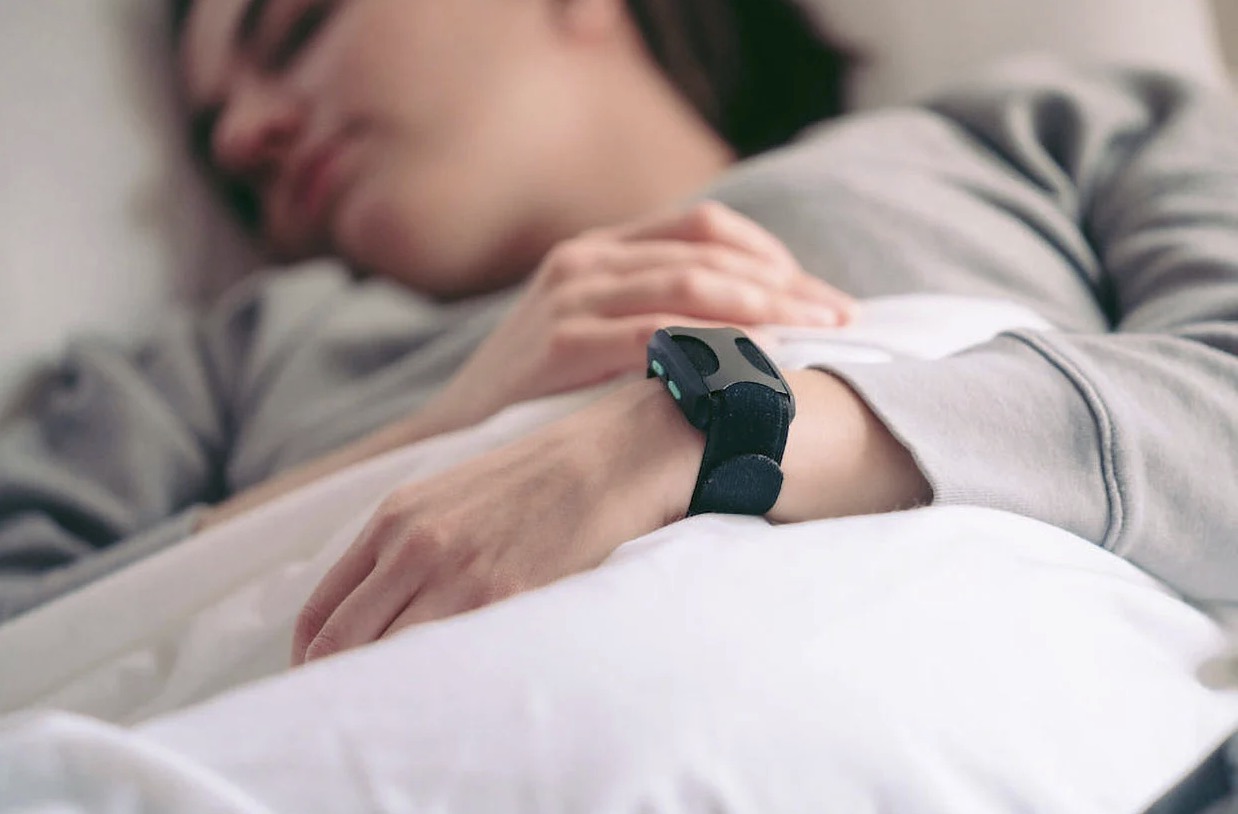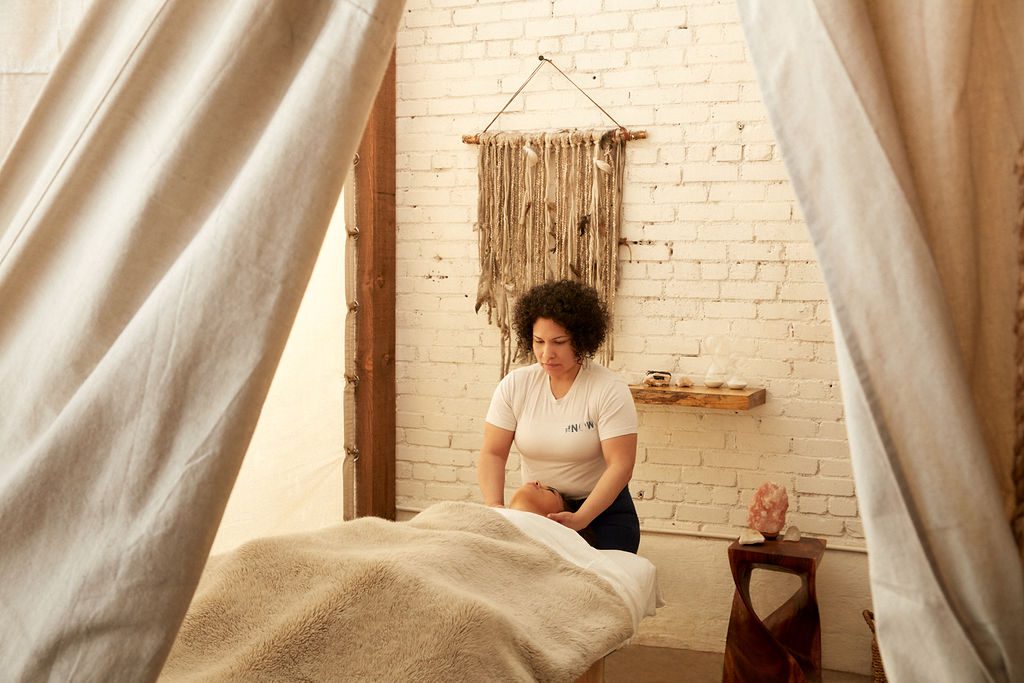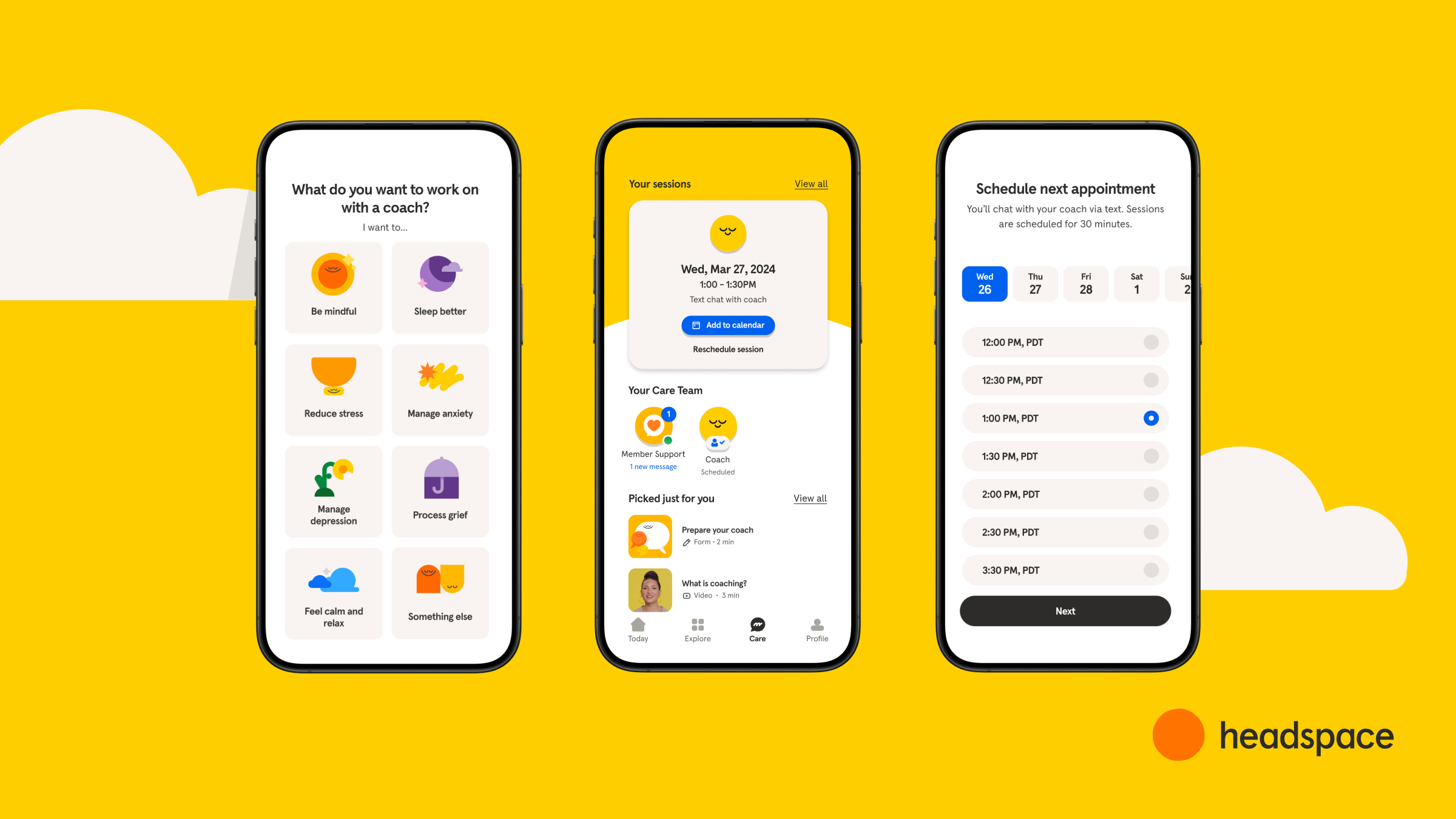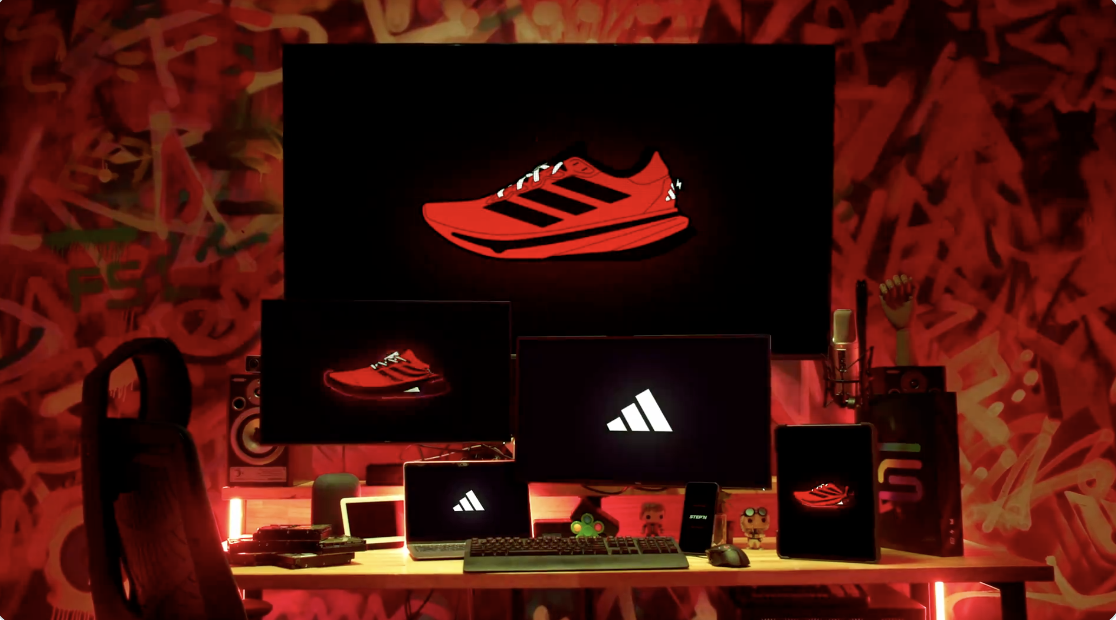The next generation of fitness trackers may autonomously address your stress before you realize it.
What’s new: Apollo Neuro, makers of a wearable that promotes stress resilience with low-frequency sound waves, launched a new sleep-improving feature called Stay Asleep.
Available through its debut membership platform Apollo Labs, the AI-enabled function automatically detects waking and delivers a series of soothing vibrations to keep the wearer asleep.
Tested in partnership with Oura, wearers reported 30 minutes more sleep each night, including more deep sleep and REM sleep.
Framing its effect on mental health, Dr. David Rabin, co-founder of Apollo Neuro, spoke to the technology’s ability to emulate and amplify the natural processes of the human brain:
“Apollo Labs represents one of the first technologies that works for us by reminding us that we are in control of how we feel at any moment, even when we’re sleeping — one of the core teachings of mindfulness and meditation.”
Between the lines: As Oura, Apple, and others attempt to quantify shut-eye, Apollo is complementing those efforts, integrating data from other wearables to better personalize its platform’s response.
But, like Apollo, other companies are going beyond sleep tracking.
- Billed as the first “sleep fitness” company, Eight Sleep integrates reactive sensors into its smart mattress to improve sleep performance.
- Therabody launched a stress-relieving sleep mask called SmartGoggles, released in tandem with an acoustic therapy lounge chair called TheraSound.
- Somnox’s Sleep Robot and Yukai Engineering’s Fufuly smart pillow simulate the pulsing effect of a sleeping infant to relieve symptoms of stress and insomnia.
Takeaway: Between NOWATCH’s “awareable,” Happy Ring’s smart mood detector, and WHOOP’s work to quantify breathwork, stress and sleep will soon be understood down to the millisecond. But, no device will be able to combat the fast-paced, screen-filled lifestyle that often prevents people from getting into bed in the first place.
 Apollo Neuro
Apollo Neuro


